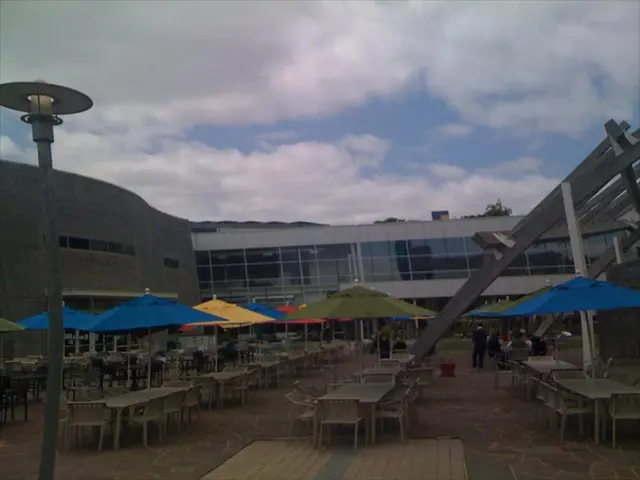UAE Residents Pondering Future Retirement: Specialists Notice Emerging Patterns
The United Arab Emirates (UAE) is witnessing a shift in its retirement landscape as more retirees choose to spend their golden years in the country. This change is driven by a combination of factors, including remote work policies, financial planning, and the allure of modern amenities, sunshine, and cultural diversity.
One of the significant trends in the UAE is the increase in remote work policies by the government, which supports greater flexibility for retirees and older workers. In 2025, the UAE expanded federal remote work policies to include working from outside the country, reflecting a broader digital and flexible approach to employment and retirement.
However, challenges persist, particularly in the areas of healthcare and financial literacy. Geriatric medicine specialist Dr Rahul Unnikrishnan has identified healthcare as a key concern for retirees in the UAE. He has suggested the introduction of a health card system for long-term residents, which could provide access to public hospital care at an annual cost of around Dh10,000 to Dh15,000.
Another challenge is the need for better financial literacy and transparency to help individuals make informed retirement planning decisions. As the trend moves towards defined contribution pensions, which place more responsibility on individuals to manage retirement savings effectively, it becomes crucial to equip retirees with the knowledge and tools they need to make the most of their savings.
Retirees in the UAE are also adapting through financial planning, internal relocation, and transnational retirement, where they divide their time between their home countries and the UAE. Property ownership among retirees is on the rise, with off-plan properties being particularly popular due to their flexible payment plans.
The UAE's real estate market is also experiencing a surge in interest from retirees. Wail Abualhamail, Director of Real Estate at ASICO, and real estate agent Shabna Ibrahim have both confirmed this trend. The UAE may soon become one of the most attractive retirement destinations in the world, but to remain so, it must continue to meet the needs of its aging residents, particularly in regards to healthcare.
Dr İdil Akıncı, a social policy lecturer and researcher, has noted two key ways retirees in the UAE are adapting: through financial planning and internal relocation. As the UAE continues to evolve as a retirement destination, these trends and challenges will undoubtedly shape the lives of its retirees and the country's social landscape for years to come.
The UAE's growing retirement population is increasingly focusing on digital employment to maintain flexibility (remote work policies). In response, the UAE expanded federal remote work policies to accommodate working from outside the country in 2025. Nevertheless, healthcare and financial literacy remain significant challenges for retirees, as highlighted by Dr Rahul Unnikrishnan, calling for a health card system and better financial transparency. Retirees are also adapting by means of financial planning, relocation within the country, and transnational retirement. The UAE's real estate market is also seeing an increase in interest from retirees, indicating that off-plan properties are attractive due to their payment plans. To maintain its position as an attractive retirement destination, the UAE must address healthcare concerns and adapt to the evolving needs of its aging residents. Adaptation strategies by retirees, such as financial planning and relocation, will significantly impact the UAE's social landscape in the future. Additionally, as retirees prioritize modern amenities, sunshine, cultural diversity, and lifestyle options like fashion-and-beauty and home-and-garden, the desire for a secure retirement and personal-finance management continue to shape their choices.








